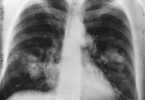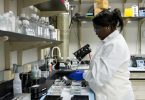In the realm of health and wellness, understanding accurate information about cancer is crucial for making informed decisions and promoting preventive measures. Importantly, with the internet having so much information, it’s difficult for many people to determine what is the truth vs myth. Unfortunately, various myths and misconceptions persist within different communities, including the Black community. Dispelling these myths is essential for fostering a comprehensive and culturally sensitive approach to cancer awareness and prevention. We must recognize these misconceptions, and empower individuals with the knowledge needed to navigate their health journeys more effectively and advocate for proactive measures against cancer.
Additionally, addressing these myths requires culturally sensitive and context-specific approaches:
- Cancer is contagious. Cancer is not contagious. It cannot be spread from person to person through touch, kissing, or any other casual contact.
- Only older people get cancer. While the risk of cancer increases with age, it can affect people of all ages, including children and young adults.
- Cancer is always a death sentence: Many cancers are treatable, especially if detected early. Advances in medical research and technology have improved survival rates for various types of cancer.
- Cancer is punishment for something done wrong. Many people within our community are God-fearing individuals looking for answers from God and blaming themselves for the disease. Cancer is a complex disease influenced by various factors, including genetics, environment, and lifestyle. It is not a punishment for past actions.
- Using deodorant or antiperspirant causes breast cancer. There is no conclusive evidence linking the use of deodorants or antiperspirants to an increased risk of breast cancer.
- Black people don’t get skin cancer. People in the Black community can still develop skin cancer, although it may be less common than in individuals with lighter skin. Sun protection is important for everyone.
- Cancer treatment always leads to infertility. While some cancer treatments may affect fertility, there are several options such as fertility preservation that individuals can explore before starting treatment.
- Alternative therapies can cure cancer. While complementary therapies may help manage symptoms or side effects, there is no scientific evidence supporting alternative treatments as a sole cure for cancer.
- You can’t prevent cancer: Adopting a healthy lifestyle can significantly reduce the risk of developing cancer. This includes maintaining a balanced diet, engaging in regular physical activity, avoiding tobacco, and limiting alcohol consumption.
- Cancer only affects certain ethnic groups: Cancer can affect people of all ethnicities, and it is important for everyone to be aware of their risk factors and engage in preventive measures.
- Men don’t get breast cancer: While it is less common, men can develop breast cancer. It’s crucial for both men and women to be aware of changes in their breast tissue and seek medical attention if any concerns arise.
- Cancer is always accompanied by noticeable symptoms: Some cancers may not present noticeable symptoms in their early stages. Regular screenings and check-ups are essential for early detection.
- Only smokers get lung cancer: While smoking is a significant risk factor for lung cancer, non-smokers can also develop the disease. Other factors, such as exposure to secondhand smoke and environmental pollutants, can contribute to lung cancer.
- Cancer is a single disease: Cancer is a group of diseases with different types and subtypes, each requiring specific approaches to diagnosis and treatment.
- If cancer runs in the family, there’s nothing you can do to prevent it: While a family history of cancer may increase the risk, adopting a healthy lifestyle can still play a crucial role in reducing the overall risk.
Debunking cancer myths within the Black community is a significant step towards fostering a healthier and more informed society. Promoting accurate information, encouraging regular screenings, and emphasizing lifestyle choices that reduce cancer risk are vital components of community well-being. It is through collaborative efforts, engaging with healthcare professionals, community leaders, and organizations, that we can create a supportive environment that prioritizes accurate health information and encourages a proactive stance against cancer. By dispelling myths and promoting awareness, we contribute to a shared goal of fostering a culture of health that transcends misconceptions and empowers individuals to take charge of their well-being.
Additional Reading:








